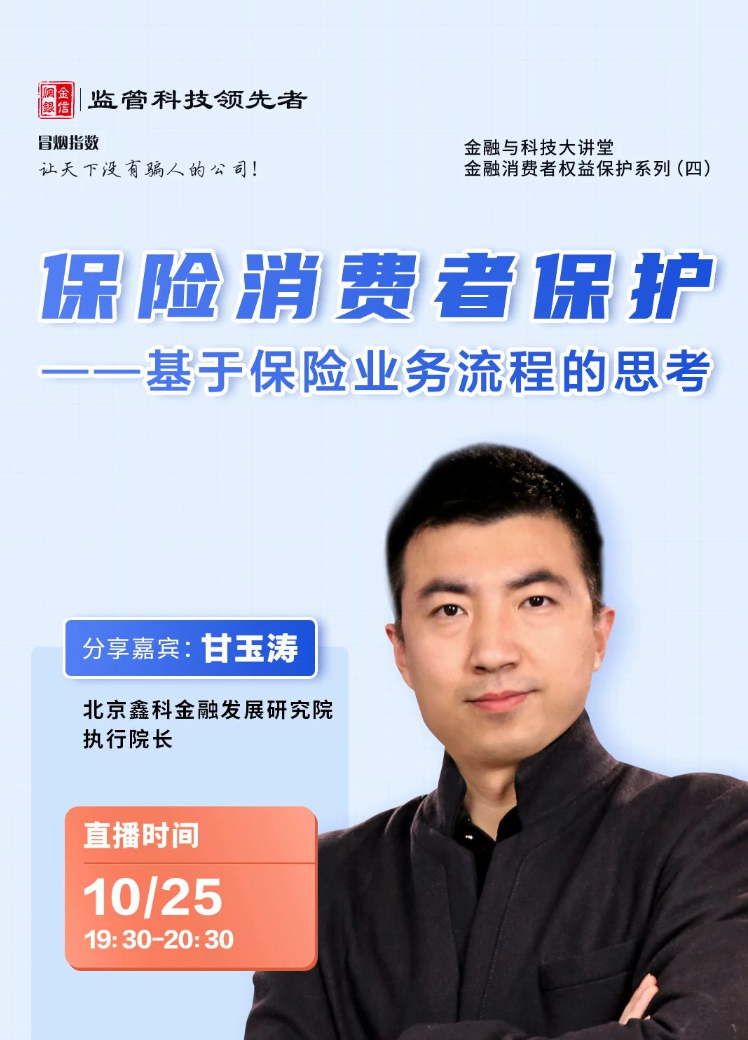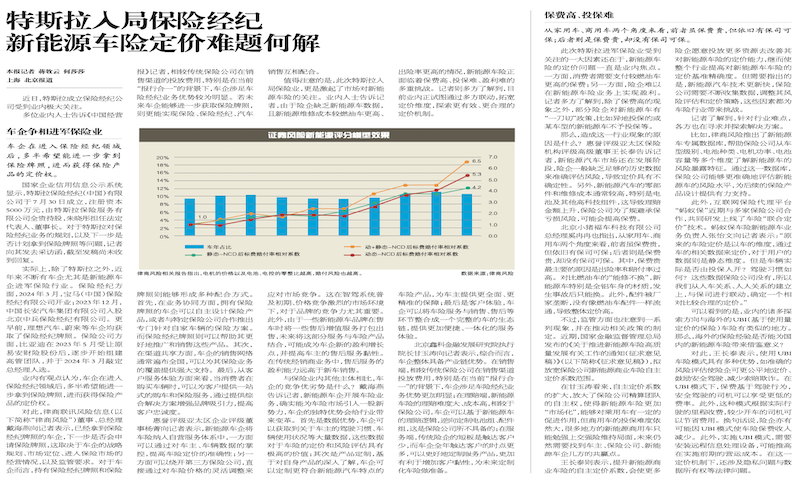Recently, Beijing Liyan Institute of Finance and Development, Beijing Association for the Promotion of Science and Technology Finance and Jinxin Internet Banking Regulatory Technology Research Institute jointly held the fourth session of the "Financial Consumer Rights and Interests Protection" series of lectures. From the perspective of insurance business process, Dean Gan Yutao shared his views from four aspects: the development status of consumer insurance in the insurance industry, the analysis of insurance consumer protection based on business processes, the protection of insurance consumer rights and interests, and future prospects.
The Chinese insurance market is developing rapidly and may surpass the United States to reach the top position in the world by 2030. Faced with such a huge market, if consumer rights protection is not done well, it will inevitably lead to a series of problems. For a long time, the protection of consumer rights and interests in the insurance industry has also been a hot issue, and we need to continuously strive to improve it.
China's insurance market is developing rapidly and is expected to surpass the United States and become a global leader by 2030. Faced with such a huge market structure, if the protection of consumer rights and interests is not fully valued and effectively implemented, it will inevitably lead to a series of serious problems. Over the years, the protection of consumer rights and interests in the insurance industry has always been a focus of social attention. We need to make unremitting efforts to continuously improve relevant mechanisms and ensure that the legitimate rights and interests of consumers are effectively protected.
Throughout the world, the insurance markets in the UK, the United States, Singapore, and Hong Kong are relatively mature, and their comprehensive regulatory frameworks are also worth our reference. President Gan Yutao pointed out that Singapore, as a country with a developed insurance market and a sound financial system, has a high level of development and advantages in both the insurance market and regulation. It has a sound legal and regulatory environment, diverse insurance products, strict requirements for insurance practitioners, transparent information disclosure, and good protection of personal privacy These are all areas that we need to learn from and learn from.
Of course, our consumer rights protection is also improving day by day. The 14th Five Year Plan and the 2035 long-term goal outline clearly state: "Strengthen consumer rights protection, improve quality standards and post evaluation systems, improve systems such as defective product recall, product injury detection, and product quality guarantee, and improve diversified consumer rights protection mechanisms and dispute resolution mechanisms
With years of industry experience, Dean Gan Yutao has analyzed the current situation of consumer protection in the insurance industry from the underwriting end, product end, claims end, and service end of the entire insurance business process. From the perspective of claims management, Dean Gan Yutao stated that the standard for "good claims" can be measured by these quantitative indicators: firstly, the "one-time submission success rate" of claim materials, which measures the convenience of claim applications; secondly, the completeness of claim materials to the deadline for settlement, which is related to the transparency of claim review time; thirdly, the platform's claim dispute rate, which is related to whether the policyholder's claims have been fully implemented; fourthly, the satisfaction of settlement, Ensuring the continuous optimization of products and services, insurance technology digitization plays a significant role in this process. Digital insurance technology has also demonstrated various application possibilities in operational services, such as using advanced technologies such as artificial intelligence to build customer profiles, implementing digital and intelligent insurance interaction services, innovating claims service processes, and using data analysis capabilities for risk identification and anti fraud. These diverse application scenarios continuously enhance the customer experience.
However, insurance consumers still face numerous challenges. Dean Gan Yutao believes that there is currently an issue of information asymmetry among insurance consumers. Due to the complexity of insurance products, consumers often find it difficult to obtain comprehensive and transparent information related to insurance products. Insurance companies or intermediaries may also selectively provide information during the sales process, resulting in consumers lacking sufficient knowledge and understanding when making purchasing decisions. At the same time, insurance contracts are filled with professional terminology and complex clauses, making it difficult for ordinary consumers to fully understand their meaning and impact, which may lead to consumers being at a disadvantage in disputes. In addition, misleading sales and obstacles to claims are also issues that cannot be ignored.
In the face of consumer protection challenges in the insurance industry, Dean Gan Yutao has also proposed solutions. The first solution to the problem of information asymmetry is to establish an information disclosure mechanism. To ensure that consumers receive comprehensive and truthful information when purchasing products, it is necessary to provide consumers with a way to supervise and evaluate the integrity and service quality of insurance companies. Secondly, it is also necessary to strengthen consumers' awareness and ability to protect themselves. Consumers need to improve their insurance literacy, screen insurance products and services that are better suited to their own needs and of higher quality with a more professional ability. They also need to enhance their awareness of rights protection, pay attention to the protection of their own rights, and solve problems through reasonable channels.
Regarding the issue of complex clauses, Dean Gan Yutao believes that insurance companies should strive to simplify contract terms and avoid using overly complex or difficult to understand professional terminology. Each clause in the contract should be described in simple and clear language to ensure that consumers can easily understand its meaning. Considering that there may still be some unavoidable professional terms in insurance contracts, insurance companies should provide contract interpretation services, which can be achieved through artificial intelligence customer service or specialized interpretation manuals. For misleading sales issues, industry regulation should be strengthened and consumer feedback mechanisms should be established. To address the issue of claims obstacles, it is necessary to optimize the claims process, establish a third-party mediation mechanism, and better solve cases with large claims.
Looking ahead to the future of the insurance industry, President Gan Yutao stated that the insurance industry is beneficial to the country and the people. In the future, we should continue to improve the regulatory system and establish a systematic framework for protecting consumer rights and interests. Promote business innovation and strengthen the adaptability of the industrial chain. At the same time, it is also necessary to strengthen popularization and promotion to enhance consumers' insurance literacy. In addition, he also advocates fully utilizing emerging technologies such as generative artificial intelligence (AIGC), privacy computing, virtual reality technology (VR), etc. to achieve digital and intelligent transformation of insurance services, thereby better protecting consumer rights and improving the quality and efficiency of insurance services. The application of these technologies not only helps to truly implement consumer rights, but also promotes the positive transformation of China's insurance industry from a major insurance country to an insurance powerhouse, contributing to the sustainable development of society and the continuous improvement of people's lives.

 Tesla enters the insurance brokerage and how to solve the problem of new energy vehicle insurance pricing
Tesla enters the insurance brokerage and how to solve the problem of new energy vehicle insurance pricing